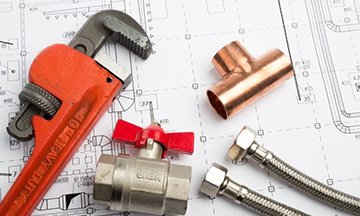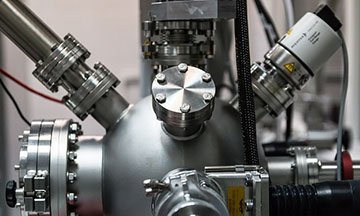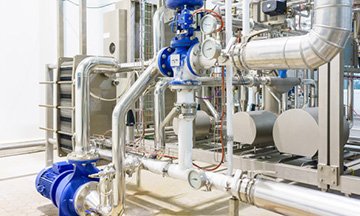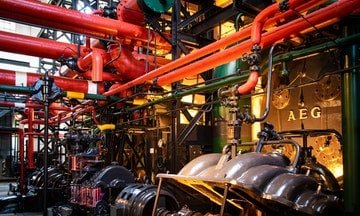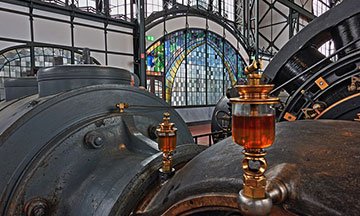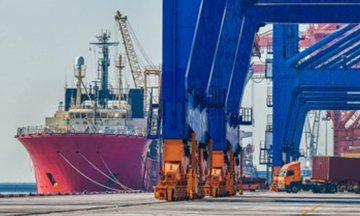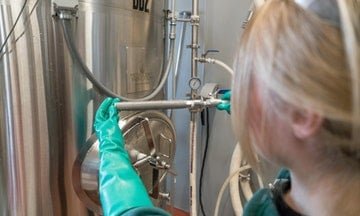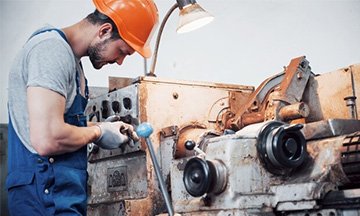Piping Design Engineering Training Course
Course Overview
This course aims to convey fundamental knowledge related to the design and layout of piping systems which can help participants widen their existing knowledge base. The program gives a comprehensive knowledge of piping essentials including piping components, the international standards associated with such equipment, materials, the designs comprised throughout the lifecycle of a piping project, the related terminology involved in their creation. The program focuses on the real-time work-related concepts and issues that the delegates may face, along with key input from the trainer’s practical experience.
How can individuals make the most of this “Specialist in Piping Design” training program? To get the full benefit of the use of this training program, delegates should expect to gather not only theoretical knowledge about piping design but also be prepared to carry out practical tasks and projects related to the subject, which will enhance their overall experience of the course.
This Zoe training course will empower you with an insight into practical piping design among real-world situations and functional learning practices.
Course Objectives
Upon completing this course on Specialist in Piping Design successfully, participants will be able to:
- Perform piping work tasks in layout, design, and installation
- Learn to design piping systems conferring to the ASME standard
- Design and understand piping layouts and isometrics
- Establish pressure ratings for piping components and ensure code compliance
- Learn to read and analyse the B31.3 Code
- Make difficult decisions related to piping design using logical factors
- Interpret pipe properties and specifications with a higher level of understanding
- Understand equipment vendor drawings and create efficient equipment layouts
Training Methodology
This collaborative Specialist in Piping Design training program will comprise the following training methods:
- Lectures
- Videos
- Seminars & Presentations
- Group Discussions
- Assignments
- Case Studies & Functional Exercises
This course also follows the ‘Do-Review-Learn-Apply’ model, similar to all our training programs.
Organisational Benefits
Companies who nominate their employees to participate in this Specialist in Piping Design course can benefit in the following ways:
- Benefit from training your employees on the definition and importance of mechanical information, along with the different roles played as a Specialist in Piping Design
- Document your Piping Design information systematically and efficiently
- Improve productivity by teaching your staff about the Piping Design work process and how it fits into the overall organisational work processes
- Achieve improved Piping Design, higher employee morale, increased productivity, and reduced costs of damage control
- Assess your Piping Design rating by evaluating its effectiveness to reduce injuries and illnesses and identifying and eliminating workplace hazards
- Reduce the damages caused by inadequate Piping Design processes
Personal Benefits
Individuals who participate in this Specialist in Piping Design course can gain from it in the following ways:
- Master the knowledge and techniques to see the future of an effective Specialist in Piping Design
- Learn how to do a good job with your machines and why it is important to do so
- Learn tips, tricks, and concepts to help you succeed as a mechanical analyst
- Make a valuable contribution to your organisation by being in a position to determine if you should implement a program at your site, or better understand an existing program
- Get an opportunity to work through hands-on exercises in detail to gain the skills needed to facilitate Piping Design
- Gain the skills to plan, manage, facilitate, and scribe for a Piping Design activity
Who Should Attend?
This Specialist in Piping Design would be suitable for:
- Piping Design Engineers
- Piping Layout Designers
- Mechanical Engineers
- Project Engineers
- Piping Supervisors
- Piping Draftsmen
- Engineering Analysts
- Technicians
- Piping Fabricators
- Process Engineers
- Those who are involved in Piping Engineering as Designers, Analysts and Operation Managers in Oil and Gas Refineries, Petrochemical / Chemical / Process / Power / Pharmaceutical / Food Plants, etc.
Course Outline
MODULE 1: INTRODUCTION TO PIPING ENGINEERING
- Introduction to Piping Engineering
- Understanding various piping components
- Typical EPC organogram
- Piping interface with other disciplines (Input & outputs)
MODULE 2: HISTORY OF PIPING CODES
- Types of ASME codes
- “Design by Rule” codes
- History of the B31 piping code
- Computer-aided analysis
MODULE 3: MORE ABOUT PIPING SYSTEMS
- What is a piping system?
- What is pipe stress analysis?
- Why is a piping stress analysis required?
- Challenges of piping stress analysis
MODULE 4: BASICS OF STRENGTH OF MATERIALS
- Stress and strain
- Engineering stress/strain versus true stress/strain
- The ductile material stress-strain relationship
- Poisson’s ratio
- Modulus of elasticity
- Linear coefficient of thermal expansion
- Stresses due to forces and moments
- Modes of failures
MODULE 5: PIPING DESIGN CONDITIONS
- Required service information
- Design Pressure
- Design temperature
- Weight & Thermal effects
- Environmental loads
- Piping design criteria
MODULE 6: CODE QUALIFICATION (STRESSES, LOADS, AND MITIGATION)
- Allowable stress basis (design criteria)
- Time-dependent allowable stresses
- Allowable internal pressure stress
- Pressure stress limitations
- Allowable variations from design conditions
- Allowable sustained and occasional stress
- Allowable test stresses
- Displacement (cyclic) allowable stresses
- Cumulative Damages
- Load rating (clamps, compression fittings)
- Mitigation of damaging loads
MODULE 7: PIPING SYSTEMS DETAILED ENGINEERING
- Layout and drafting of piping systems
- Mechanical and process equipment
- ASME codes and standards
- Classification of pipes
- Piping Specifications – ASME / ASTM
- Pipe fittings
- Types of flanges
- Types of valves
- Mechanical and process equipment
- Flow diagrams
- Piping isometric
- Piping and equipment layout
- Pipe supports
MODULE 8: PIPING SYSTEMS DESIGN & CALCULATIONS
- Piping requirements – ASME B31.3
- Design pressure integrity
- Typical wall thickness calculation
- Hydraulic design of piping systems
- Design calculations of piping sizing
- Pump calculations
MODULE 9: FLEXIBILITY ANALYSIS AND STRESS LIMITS
- Basics of thermal stress
- Techniques to mitigate thermal stresses in piping systems
- When is formal flexibility analysis required?
- Stress intensification factors and flexibility factors
- Allowable thermal stress range and piping codes
- Displacement stress range and piping codes
- Sustained stress limits and piping codes
- Occasional stress limits and piping codes
- Pipe flexibility analysis conferring to ASME B31.3
MODULE 10: PIPING PROJECT WORK AS PER ASME STANDARDS
- CAESAR II – static analysis
- Submission of a project as per ASME
- Fabrication of piping and hydro testing
MODULE 11: PIPING DATA
- Piping sizes and schedule dimensions
- Socket welding dimensions
- Simplified layout charts
